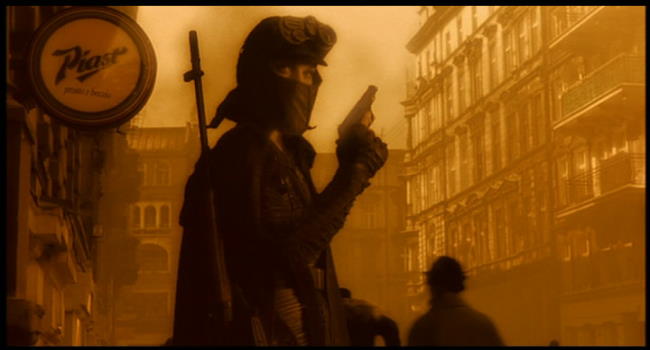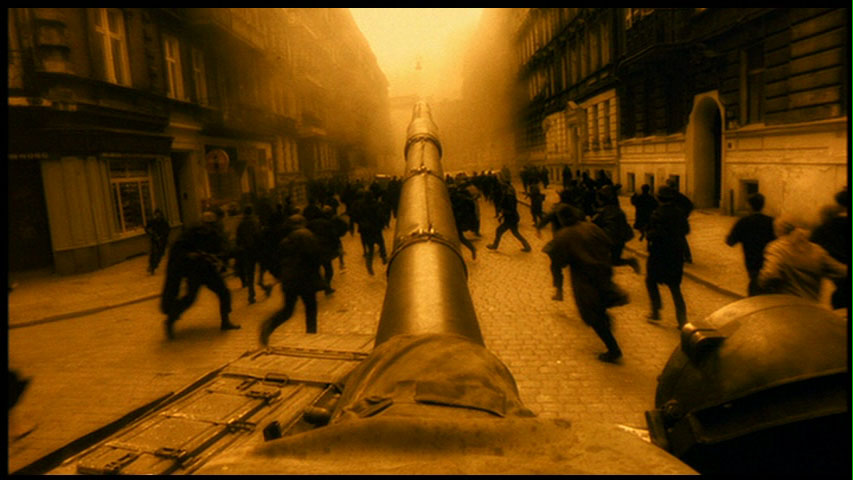Essay -
Is TV cinema?

Yes. TV is a method of distribution of film, another method is through movie theaters. Essentially there is no difference between the two: both consist of watching a screen with sounds. They are the same medium.
The movie theater holds a nostalgic quality because for several decades it was the only method for the distribution of film. After the TV was invented most film production was and still is allocated for distribution through the TV, these were the so called "TV series". Movie theaters became second rate venue for watching a screen, since it's so much easier to watch it at home. Hence, movie theaters became the places where the more special films were released, to make the act of actually getting out of home to watch a screen become "special". From this came the distinction between "TV shows" and "movies".
Old movies involved much less attention and effort in their production: John Ford made about 100 movies Mizoguchi made about 70, Chris Nolan and James Cameron made 7-8 movies, respectively. As movies ceased to be the main form of screen entertainment and became a rare and more special occasion there was a divergence in the way film for movie theaters is produced, now they are special "events" involving a lot of effort in their production. Which explains why in the old days it took a couple of months for Ford to make a movie but now James Cameron is taking several years to make his Avatar 2.
TV shows, in the other hand, became the mass production method of choice for the mass produced film. Hence, on average, TV shows involve a lower degree of attention given to their production than film and are more like the movies of old directors like Ford's and Mizoguchi's. Thinking about it, Ozu's slice of life films can be understood as a "Japanese daily life" TV show of 2 hour long episodes that came out once a year. And modern soup operas such as the Brazilian telenovelas are produced at the rate of 150 hours of content a year, so fast that there is virtually no time spend consciously on the direction and acting. Still some telenovelas have pretty good writing.
So it's true that on average TV shows involve far less visual quality and less emphasis on visuals/images/composition than movies do. But that's on average: Madoka, for example, is a TV show that displays a level of focus on visuals and a level of visual creativity that far surpasses the typical movie and is comparable to classics like Kubrick's 2001 or Citizen Kane. TV can achieve indeed artistic greatness.
One shouldn't be prejudiced against TV shows and instead should be able to appreciate film released through any type of distribution method and understand and appreciate the differences as well.




 I just find the tropes and clichťs that characterize blockbuster movies to be rather dull and boring these days after watching so many of them. Still I loved Star Wars 7 so I am maybe being inconsistent here.
I just find the tropes and clichťs that characterize blockbuster movies to be rather dull and boring these days after watching so many of them. Still I loved Star Wars 7 so I am maybe being inconsistent here.






